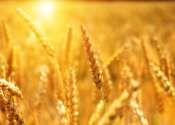Domesticated wheat has complex parentage
Certain types of domesticated wheat have complicated origins, with genetic contributions from wild and cultivated wheat populations on opposite sides of the Fertile Crescent. Terence Brown and colleagues at the University ...









